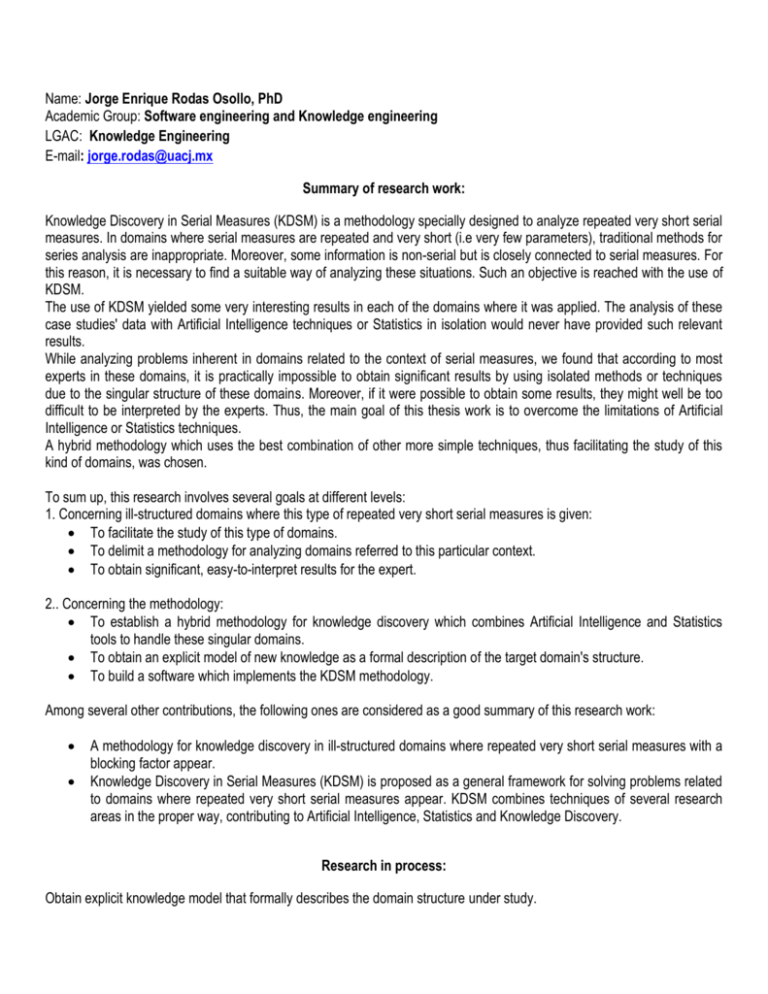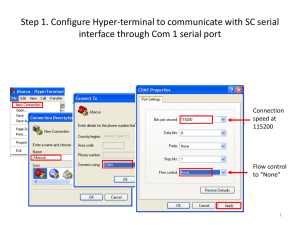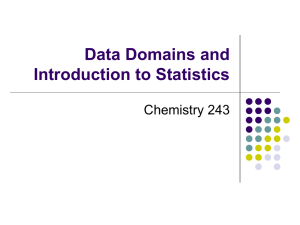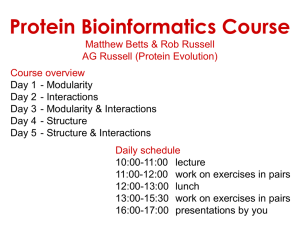Jorge Enrique Rodas Osollo, PhD
advertisement

Name: Jorge Enrique Rodas Osollo, PhD Academic Group: Software engineering and Knowledge engineering LGAC: Knowledge Engineering E-mail: jorge.rodas@uacj.mx Summary of research work: Knowledge Discovery in Serial Measures (KDSM) is a methodology specially designed to analyze repeated very short serial measures. In domains where serial measures are repeated and very short (i.e very few parameters), traditional methods for series analysis are inappropriate. Moreover, some information is non-serial but is closely connected to serial measures. For this reason, it is necessary to find a suitable way of analyzing these situations. Such an objective is reached with the use of KDSM. The use of KDSM yielded some very interesting results in each of the domains where it was applied. The analysis of these case studies' data with Artificial Intelligence techniques or Statistics in isolation would never have provided such relevant results. While analyzing problems inherent in domains related to the context of serial measures, we found that according to most experts in these domains, it is practically impossible to obtain significant results by using isolated methods or techniques due to the singular structure of these domains. Moreover, if it were possible to obtain some results, they might well be too difficult to be interpreted by the experts. Thus, the main goal of this thesis work is to overcome the limitations of Artificial Intelligence or Statistics techniques. A hybrid methodology which uses the best combination of other more simple techniques, thus facilitating the study of this kind of domains, was chosen. To sum up, this research involves several goals at different levels: 1. Concerning ill-structured domains where this type of repeated very short serial measures is given: To facilitate the study of this type of domains. To delimit a methodology for analyzing domains referred to this particular context. To obtain significant, easy-to-interpret results for the expert. 2.. Concerning the methodology: To establish a hybrid methodology for knowledge discovery which combines Artificial Intelligence and Statistics tools to handle these singular domains. To obtain an explicit model of new knowledge as a formal description of the target domain's structure. To build a software which implements the KDSM methodology. Among several other contributions, the following ones are considered as a good summary of this research work: A methodology for knowledge discovery in ill-structured domains where repeated very short serial measures with a blocking factor appear. Knowledge Discovery in Serial Measures (KDSM) is proposed as a general framework for solving problems related to domains where repeated very short serial measures appear. KDSM combines techniques of several research areas in the proper way, contributing to Artificial Intelligence, Statistics and Knowledge Discovery. Research in process: Obtain explicit knowledge model that formally describes the domain structure under study. Studies: Ph.D. Artificial Intelligence. Universidad Politécnica de Cataluña. April 10, 2003. Thesis: Knowledge Discovery in repeated and very short serial measures with a blocking factor. Opinion: Excellent Cum Laude M.C. Maestro in Sciences, Artificial Intelligence. Universidad Politécnica de Cataluña, June 2001.. Thesis: Knowledge discovery from repeated very short-series with a blocking factor. Application to a psychiatric domain. Certificación: Diploma de Estudios Avanzados (DEA) B.S. in Electronic Engineering Instituto Tecnológico de Chihuahua, February 1993. Academic Exchange Activities: Paper: Toward a Architectural Models Definition. 2009 International Conference of Engineering and Technology. Cd. Juárez, Chihuahua. México (September 2009). Paper KANSEN: Programmable Vehicle. First International Multidisciplinary Scientific Research ICM 2007. Chihuahua, México. (September 2007). Paper COLUMBUS: The Discoverer of Knowledge. First International Multidisciplinary Scientific Research. ICM 2007. Chihuahua, México. (septiembre 2007). Paper. Methodology for developing electronic materials. First International Congress Methodology Instituto Politécnico Nacional Méx. (November 2006). Paper KDSM: Screnning Effectiveness in Government Programs. LACCEI 2006 The Fourth Latin American and Caribbean Conference for Engineering and Technology. Universidad de Puerto Rico en Mayaguez PR. (June 2006). Paper KDSM: Analysis of a Psychiatric domain. LACCEI 2006 The Fourth Latin American and Caribbean Conference for Engineering and Technology. Universidad de Puerto Rico en Mayaguez PR. (June 2006). Publications: Fernandez, L.F. and Rodas, J. Título: Toward a Architectural Models Definition. Memoria: International Conference of Engineering and Technology . ISBN: 13 978-0-615-31650-5, 2009. Editorial: Universidad Autónoma de Ciudad Juárez. Chihuahua. México September 2009. Rodas, J. and Portillo, E. Título: Children in th Street. Magazine: Multidisciplinary Research. Instituto Tecnológico de Estudios Superiores de Monterrey (Campus Chihuahua). ISSN:1665-790X, v6(2), 2007. December 2007. Rodas, J. and Pérez, R. and Bergos, J. Título: COLUMBUS: The Discoverer of Knowledge. Report: First International Multidisciplinary Scientific Research. ICM 2007.Editorial: Instituto Tecnológico de Estudios Superiores de Monterrey. Campus Chihuahua. September 2007. Rodas, J. and Caraveo, A. and Valencia, M. Título: KANSEN: Programmable Vehicle. Report: First International Multidisciplinary Scientific Research ICM 2007. Editorial: Instituto Tecnológico de Estudios Superiores de Monterrey. Campus Chihuahua. September 2007. Rodas, J. and Alvarado, G. and Vázquez, F Título: KDSM: Efectiveness Detection on Government Programs. Magazine: Latin American and Caribbean Journal of Engineering Education. ISSN: 1935-0295, 2007. Editorial: LACCEI (Latin American and Caribbean Consortium of Engineering Institutions), a not-for-profit organization incorporated in the state of Florida, USA. Fecha: Agosto, 2007.









